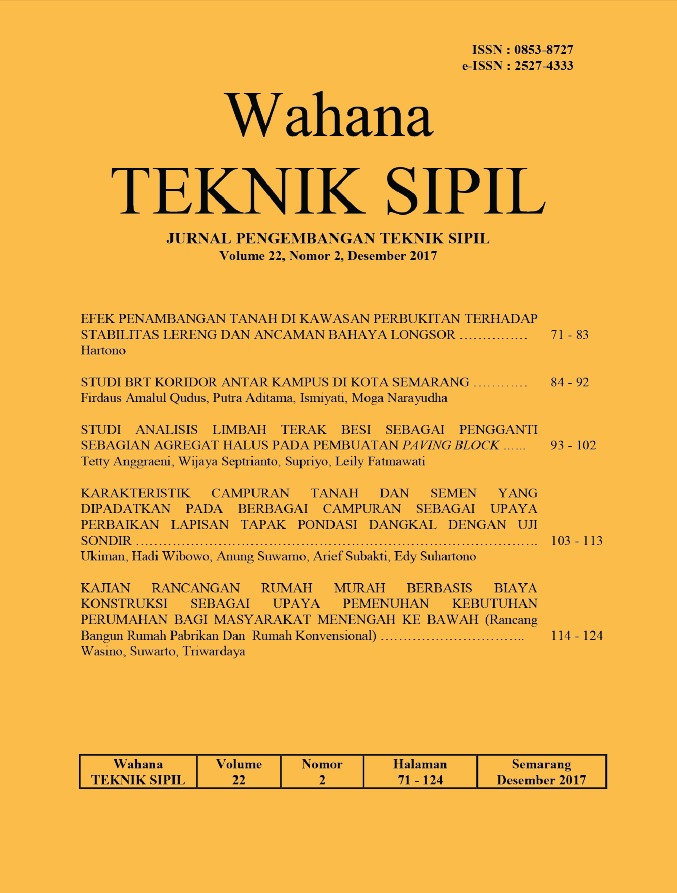Studi Analisis Limbah Terak Besi Sebagai Pengganti Sebagian Agregat Halus Pada Pembuatan Paving Block
DOI:
https://doi.org/10.32497/wahanats.v22i2.1166Abstract
PT Inti General Yaja Steel Semarang is a company engaged in the metal industry, from the production activities produced waste iron slag in large quantities. On the other hand the availability of materials in the manufacture of paving blocks that are natural resources will over and can not be updated, this problem will be sought alternative replacement. The purpose of this study is the utilization of iron slag waste as a substitute of some fine aggregates in the manufacture of paving blocks, to find out the maximum compressive strength and the most efficient production cost among the mixture 1Pc : 6Ps (standard); 1Pc : 5Ps : 1Tb; 1Pc : 4Ps : 2Tb; 1Pc : 3Ps : 3Tb; 1Pc : 2Ps : 4Tb; 1Pc : 1Ps : 5Tb. Paving blocks made with size (21 x 10.5 x 6) cm. Based on the average 28-day estimate, standard paving blocks have a compressive strength of 204.09 kg/cm2, the maximum compressive strength is in the mixture of 1 PC: 3 PS: 3 TB of 335.28 kg/cm2, an increase of 64.28% of the standard paving block. While the minimum compressive strength is in the mixture of 1 PC: 1 PS: 5 TB of 195.89 kg/cm2, decreased 4.02% compared to standard paving blocks. When reviewed based on production costs, the standard paving block has a production cost of Rp 1.004,29. A mixture of 1 PC: 3 PS: 3 TB has a production cost of Rp 974,29 decreased 2.99% when compared to standard paving blocks. The most cost efficient production mix is 1 PC: 1 PS: 5 TB of Rp 894,69. Reduced by 10.91% of standard paving blocks
Kata kunci : compressive strength, paving block, iron slag
Downloads
Published
Issue
Section
License
Authors who publish with this journal agree to the following terms:Authors retain copyright and grant the journal right of first publication with the work simultaneously licensed under a Creative Commons Attribution License that allows others to share the work with an acknowledgement of the work's authorship and initial publication in this journal.
Authors are able to enter into separate, additional contractual arrangements for the non-exclusive distribution of the journal's published version of the work (e.g., post it to an institutional repository or publish it in a book), with an acknowledgement of its initial publication in this journal.
Authors are permitted and encouraged to post their work online (e.g., in institutional repositories or on their website) prior to and during the submission process, as it can lead to productive exchanges, as well as earlier and greater citation of published work (See The Effect of Open Access).






